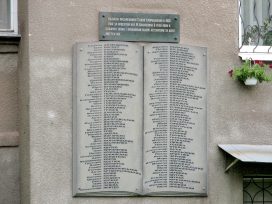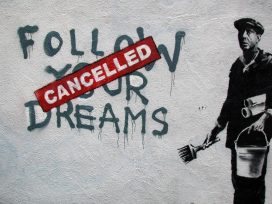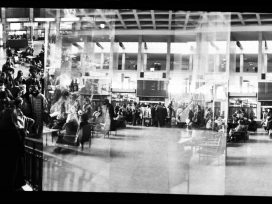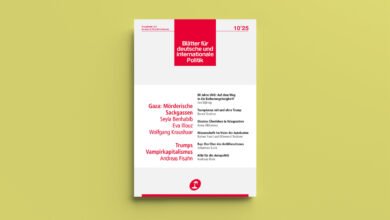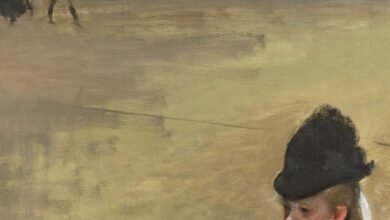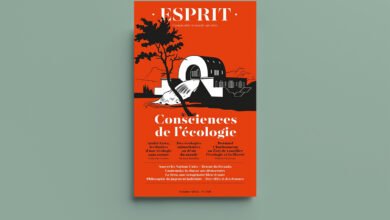From political correctness to ‘cancel culture’, staying ‘woke’ seems to be the comedian’s new worst nightmare. While humor acts as a response to the crumbling state of the world, how ‘PC’ can someone be when dealing with offensive jokes?
Comedy changes with the times, and can be a powerful tool for social critique. As comedian Aislinn Kane, founder of Gays and Theys Comedy in Vienna, puts it: ‘Comedy is the most honest way of portraying what our current societal values are.’
Through ‘punching up’; making fun of the church, police, state, public personas, or any kind of politician, the genre can thematize anything from authoritarian regimes to everyday misconceptions. How far one can go remains negotiable, as doing so can be met with serious political consequences.
As opposed to the prevailing culture of jumping to conclusions, humor opens people up to other perspectives. Homer Hakim, owner of the Comedy Pub in Vienna, clearly says that he never wants to tell anybody what to joke about.
Comedy isn’t inherently fair though. It has long been a vehicle of negative stereotyping, be it queer and transphobia, racism, sexism, ableism, etc. Comedy as a profession is itself known for discriminating.
Oftentimes, those who most complain about ‘cancel culture’ are in positions of power, known for their problematic views and stances. It sometimes goes as far as show business billionaires complaining about how they just can’t say things anymore, because those women/trans people/abuse survivors/homeless folks and other tyrants just won’t know how to take a joke.
Instead of ‘punching down’, Jannis Panagiotidis uses the reference of ‘punching sideways’; meaning to make fun of people belonging to the same group as one’s own. To avoid offending others, but to leave room to joke about the nuances of our diverse lived experiences.
Aislin Kane is a California-born, Vienna-based comedian and founder of Gays and They Comedy in Vienna.
Jannis Panagiotidis is the scientific director at the Research Center for the History of Transformations (RECET) at the University of Vienna. He specializes in the history of migration and is a recurring author of Eurozine.
Homer Hakim is a Vienna-based Afghani comedian and founder of the Comedy Pub, the only pub fully dedicated to stand-up comedy in Vienna.
We meet with them at The Alte Schmiede Kunstverein, Vienna.
Creative team
Réka Kinga Papp, editor-in-chief
Merve Akyel, art director
Szilvia Pintér, producer
Zsófia Gabriella Papp, executive producer
Salma Shaka, writer-editor
Priyanka Hutschenreiter, project assistant
Management
Hermann Riessner managing director
Judit Csikós project manager
Csilla Nagyné Kardos, office administration
OKTO Crew
Senad Hergić producer
Leah Hochedlinger video recording
Marlena Stolze video recording
Clemens Schmiedbauer video recording
Richard Brusek sound recording
Video Crew Budapest
Nóra Ruszkai, sound engineering
Gergely Áron Pápai, photography
László Halász, photography
Postproduction
Nóra Ruszkai, lead video editor
Réka Kinga Papp, conversation editor
Art
Victor Maria Lima, animation
Cornelia Frischauf, theme music
Captions and subtitles
Julia Sobota, Daniela Univazo, Mars Zaslavsky, Marta Ferdebar, Olena Yermakova, Farah Ayyash
Hosted by the Alte Schmiede Kunstverein, Vienna.
Related reads
Cancel culture vs. execute culture by Victoria Amelina, Eurozine
Delete your profile, not people by Geert Lovink, Eurozine
Freedom of movement: A European dialectic by Jannis Panagiotidis
Further sources
Conflict, commitment and fear: Post-Soviet migrants in Germany and war in Ukraine by Nino Aivazishvili Gehne, Alina Jašina-Schäfer, and Jannis Panagiotidis
Disclosure
This talk show is a Display Europe production: a ground-breaking media platform anchored in public values.
This programme is co-funded by the Creative Europe Programme of the European Union and the European Cultural Foundation.
Importantly, the views and opinions expressed here are those of the authors and speakers only and do not necessarily reflect those of the European Union or the European Education and Culture Executive Agency (EACEA). Neither the European Union nor the EACEA can be held responsible for them.


